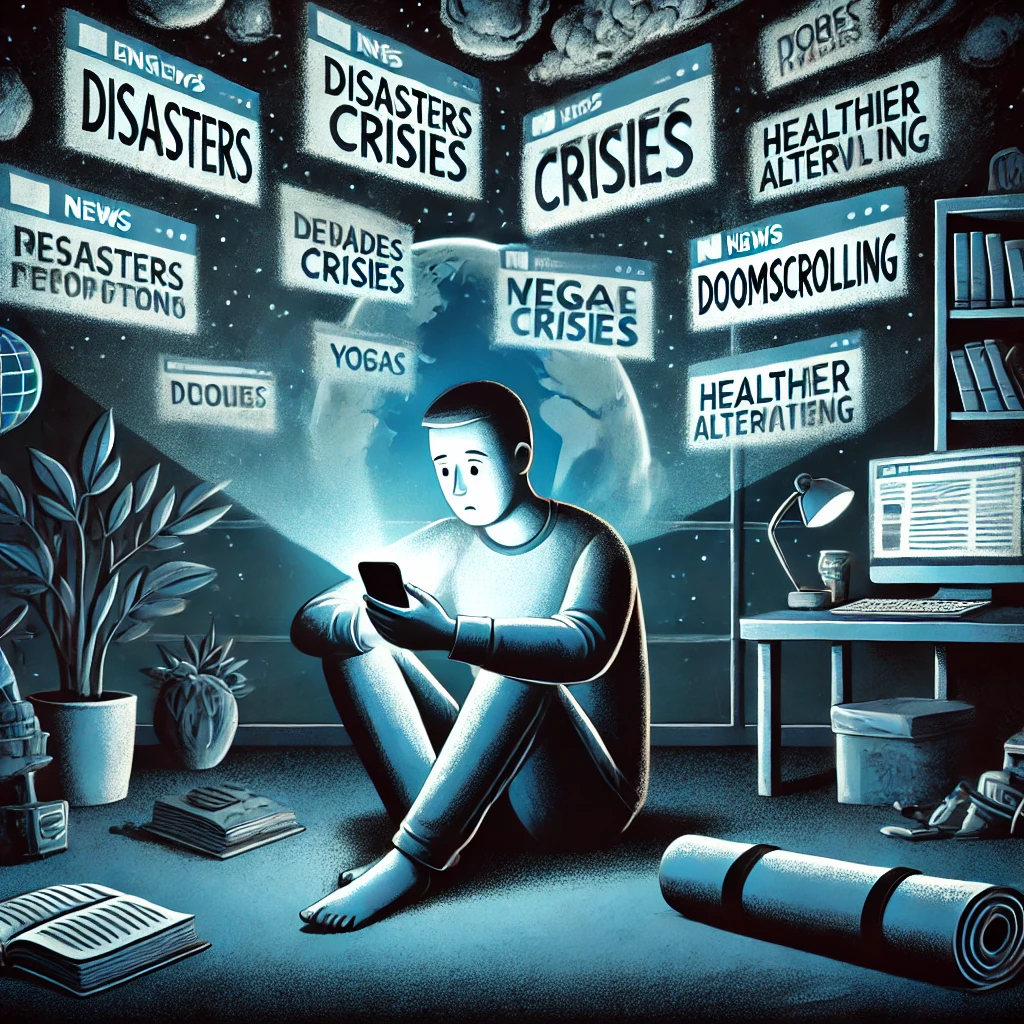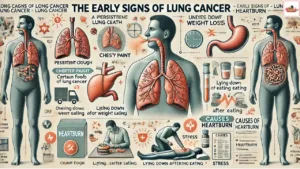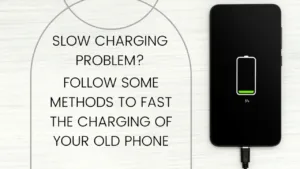
Doomscrolling - A new generation horrible habbit:

In the age of constant connectivity when everyone is always connected, “doomscrolling” is now an alarming development. “Doomscrolling” arises from connecting “doom” to “scrolling.” It is the habit of consuming endless bad news on Internet which usually leads to fear and stress. This behaviour, which is almost an addiction for some people, has particularly been common in the past few years due to universal disasters, revolutions in society as well as ubiquity in social networks.
What is Doomscrolling?
Doomscrolling is when you can’t stop yourself from reading horrible news stories even though they make us unhappy. This type of behavior tends to happen when we are faced with such crisis situations as coronavirus outbreak situations (COVID-19), political turmoil and natural calamities where voluminous bad news avalanche us. Hence, victims keep on flipping through successive articles with sad stories thereby causing their tension levels to go up while feeling very anxious without any solution or way out.
It is almost midnight and you are mindlessly scrolling through social media reading negative news. However, these headlines appear on the screen every day in different forms. Every time you get shocked and your hands get sweaty, but you are unable to look away. In the language of science, this problem is called ‘doomscrolling’.

Also Read
Psychological and social factors:
Several psychological and social factors drive Doomscrolling, and they are as follows:
1. Negativity bias; as a survival mechanism, human brains pay more attention to negative information. This makes us likely to recall and pay attention to distressing news items more often than others.
2. Fear of Missing Out (FOMO): In the era of instant updates, people are afraid of missing significant happenings; hence, they keep checking for new information regularly.
3. Social Validation: Sharing or discussing depressing stories can create an online sense of connection or validation among groups, despite affecting individual wellness negatively.
4. Algorithmic Influence: The algorithms used by various social media platforms serve the goal of maximizing user engagement hence normally put top priority on sensational content that may keep individuals locked in.

Recent Study:
A recent study of 800 university students in the US and Iran shows that habitually scrolling excessively through disturbing news on social media (doomscrolling) makes us sad, anxious and angry.
Apart from this, it can change the way we understand humanity and the meaning of life. Study author and Flinders University psychologist Reza Shabang says, ‘Constant exposure to negative news can affect you psychologically even if you are not directly connected to the incident.
The Impact on Mental Health:
The outcomes of doomscrolling are extensive and profound. Being exposed to bad news for a long time can result in:
Greater anxiety and depression: Consistently taking in upsetting news can worsen feelings of hopelessness hence cause more anxiety and depressive symptoms.
Problems with sleeping: Engaging in doomscrolling at night can prevent sleep which in turn exacerbate mental illnesses.
Limited productivity: The amount of time and negative feelings devoted to doomscrolling detracts from being productive and one’s state of health.
Studies say that exposure to photos and information related to traumatic events has been shown to cause symptoms of post-traumatic stress disorder such as anxiety and depression in people. Shabang explains, ‘When we are constantly exposed to negative news and information online, it makes us feel threatened in our own lives.
This can make our view of the world and the people around us more negative. Our trust starts to decrease, we start looking at everyone with suspicious eyes. Researchers claim that this is the first study on the threat to existence due to doomscrolling. The results of the study have been published in the journal Computers in Human Behavior Reports.
The mental health impact of doomscrolling is “similar to being in a room where people are constantly shouting at you,” says Dr Joanne Orlando, a digital behaviour expert at Western Sydney University.
He said that it is important for users to understand how much importance they should give to such news on social media. Therefore, it would be better to keep a little gap between viewing social media before going to sleep and after waking up.

Strategies to Combat Doomscrolling:
The first step towards stopping doomscrolling is to acknowledge its harmful effects. Below are some tips to help one take back control:
1. Set Limits – Have specific hours for checking news, and resist going to bed while engaging with newsfeeds on different platforms.
2. Streamline Your Feed: That means filling your timeline with happy things only instead of deleting accounts giving out negative vibes.
3. Pay Attention: Use mind-quieting methods like mindfulness practices or deep breathing exercises when tension starts building up.
4. Find Harmony – Sometimes reverse the high negativity from news sources with less gloomy topics like hobbies, nice events happening around or educational ones.
5. Get Moving: Taking part in physical exercises can act as a means of reducing anxieties and enhancing moods than scrolling through bad news all the time.
Helen Christensen, a mental health expert at the University of New South Wales, suggests taking regular breaks from social media. People often doomscroll to get rid of boredom. Think of a new hobby so that you don’t get bored and turn to social media again.
Set a goal to read more positive news than negative ones. Be alert to check your phone but don’t become obsessive. Keep reducing the time you scroll. The biggest advantage of reducing time on social media is that you learn to be present in the present. If these measures don’t work, don’t hesitate to seek help from a doctor.
Conclusion:
Checking social media all the time takes a toll on our mental well-being and our ability to see things in perspective. This habit can lead to what is known as “dooms scrolling,” where we feel compelled to continue scrolling down our news feed, even when we know it’s bad news after bad news all the time.
Despite being aware that doomscrolling makes us unhappy, many individuals find themselves unable to stop doing until they have had enough sleep or taken some time off work. The results are usually a stressful day ahead of them because they are going against their daily routines which are so convenient otherwise just like any other human being who finds something difficult enough yet does nothing about changing those things ignored.











